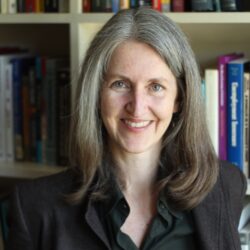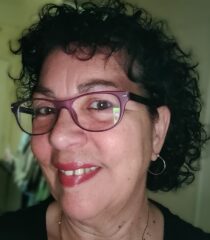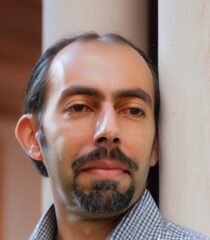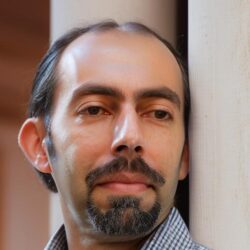Officers, Honorary Fellows, Executive Council, and Committees
OFFICERS
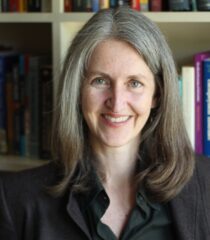
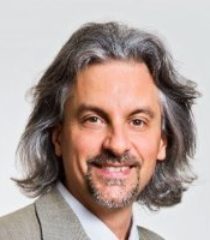
French National Center of Scientific Research
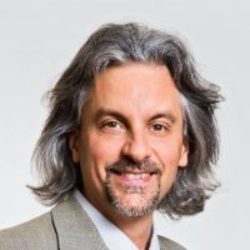
P: Accounting, Economics, and Law
Yuri Biondi is tenured senior research fellow of the CNRS (National Centre for Scientific Research of France, IRISSO – University Paris Dauphine. Graduate of the Bocconi University of Milan (DES), of the University of Lyon (DEA, PhD), of the University of Brescia (PhD) and of the University of Paris I Sorbonne (HDR), he is founding editor of the Journal “Accounting, Economics and Law: A Convivium”. Yuri has been working with the SASE since 2005, as mini-conference organiser and research network convener for “Accounting Economics and Law.”
He was chairman of the Financial Accounting Standards Committee (FASC) of the American Accounting Association (AAA) from August 2011 to August 2013. His research program combines economics with law and accounting, focusing on the relations between individuals, organisations and institutions in economy, polity and society. His research interests include economic theory, dynamic systems analysis, corporate governance and social responsibility, financial and prudential regulation, accounting theory and regulation, and governmental accounting and finances.
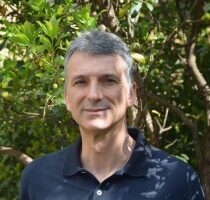
Università degli Studi di Milano
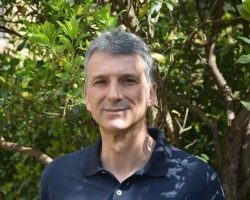
Roberto Pedersini is Associate Professor of Economic Sociology and Director of the interdepartmental research centre “WTW – Work, Training and Welfare” at the Università degli Studi di Milano. His main research interests concern labour market regulation and policies and industrial and employment relations. He has both participated and coordinated several research projects in these fields since the early 1990s at both national and international level. He has collaborated with the International Labour Office and collaborated as an expert with the European Commission and the European Foundation for the Improvement of Living and Working Conditions in several occasions. His recent publications include Economic crisis and the politics of public service employment relations in Italy and France (with Lorenzo Bordogna, in European Journal of Industrial Relations, vol. 19, no. 4, 2013), Coping with the crisis in Italy: Employment relations and social dialogue amidst the recession (with Marino Regini, ILO, 2013) and contributions to Sociology of Work. An Encyclopedia (V. Smith, ed., Sage Publications, 2013).
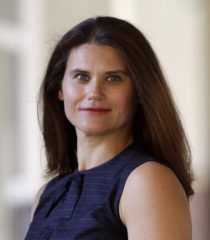
University of California, Irvine
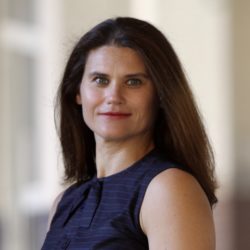
Nina Bandelj (she/her) is Chancellor’s Professor in the Department of Sociology, associate vice provost for faculty development, and co-director of Center for Organizational Research at the University of California, Irvine. An economic sociologist, Bandelj is interested in how relational work, culture, power, and emotions influence investment, spending, debt, inequality, and ideas about the economy. Growing up in Yugoslavia and coming of age as Eastern Europe transformed rapidly after the fall of the Berlin Wall inspires Bandelj to connect individuals’ emotions, beliefs and struggles with systemic transformations of communism, capitalism, and the global economy.
Bandelj has published numerous articles and book chapters, including in the American Sociological Review, Social Forces, Theory and Society, and Socio-Economic Review. Her books include From Communists to Foreign Capitalists: The Social Foundations of Foreign Direct Investment in Postsocialist Europe (Princeton University Press, 2008), Economy and State: A Sociological Perspective (Polity Press, 2010, with Elizabeth Sowers), Economic Sociology of Work (Emerald Publishing, 2009), The Cultural Wealth of Nations (Stanford University Press, 2011, with Frederick F. Wherry), Socialism Vanquished, Socialism Challenged: Eastern Europe and China, 1989-2009 (Oxford University Press, 2012, with Dorothy Solinger), and Money Talks: Explaining How Money Really Works (Princeton University Press, 2017, with Frederick F. Wherry and Viviana Zelizer). Her research has been funded by the American National Science Foundation, American Council for Learned Societies, and Slovenian National Research Agency, among others.
Bandelj, who received her Ph.D. from Princeton University, is past Fellow at the Center for Advanced Study in the Behavioral Sciences at Stanford, the Max Planck Institute for the Study of Societies in Cologne, and the European University Institute in Florence. She is an honorary member of the Sociological Research Association, and a recipient of the Distinguished Mid-Career Award for Service, the Dynamic Womxn Award for Academic Achievement, and the Carol Connor Equity Advisor Impact Award from the University of California, Irvine. She was awarded a life-time title of Professor at the University of Ljubljana, Slovenia.
In addition to her scholarship, Bandelj has a deep commitment to service and inclusive excellence. She has served as equity advisor and acting associate dean for research and graduate affairs in the School of Social Sciences, and as facilitator in Women’s Initiative supported by the University of California, Office of the President. In her role as inaugural associate vice provost for faculty development, she designs and oversees programs, and consults on policies in support of faculty advancement, well-being, and equity. Bandelj is finishing her term as one of the editors of Socio-Economic Review and was previously Treasurer of the Society for the Advancement of Socio-Economics. She was Vice President of the American Sociological Association for 2021-22 and is currently SASE President-Elect for 2022-2023.
STAFF
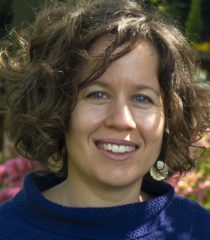
Society for the Advancement of Socio-Economics
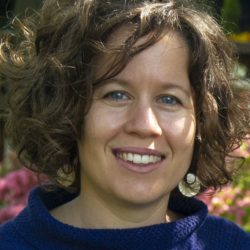
Annelies Fryberger holds a PhD in sociology from the EHESS, where she was a member of the Analysis of Musical Practices team at the IRCAM and the Center for Research on the Arts and Language (CRAL) of the EHESS. She wrote her dissertation on peer review in contemporary art music in France and the United States. She held postdoc positions with the DAAD, the LabEX CAP, and the New School, and she continues her research on artistic practices and evaluation. The book based on her dissertation, Juger le singulier (Symétrie) was published in 2023. Her research has been published in Poetics, Contemporary Music Review, and Curator: The museum journal, among others.
EXECUTIVE COUNCIL
The Executive Council is SASE’s official policymaking body. It consists of 24 members, each elected for a term of three years, and convenes twice yearly to make decisions and nominations that govern SASE’s everyday functioning as well as its future.
Aldo Madariaga – UDP (University of Diego Portales)
Andrea Mennicken – LSE (London School of Economics)
Antonio Botelho – Universidade Candido Mendes, Rio de Janeiro, Brazil
Arianna Tassinari – University of Bologna (Unibo)
Barbara Kiviat – Stanford University
Caroline Arnold – City University of New York
Chiara Benassi – King’s College London (KCL)
Elizabeth Gorman – University of Virginia
Elizabeth Thurbon – UNSW (University of New South Wales)
Elsa Clara Massoc – University of St. Gallen
Kathryn Ibata-Arens – DePaul University
Kevin Young – University of Massachusetts
Kim Pernell – University of Texas at Austin
Leonard Seabrooke – Copenhagen Business School
Lucio Baccaro – Max Planck Institute for the Study of Societies
Marta Castilho – Federal University of Rio de Janeiro (UFRJ)
Matthias Thiemann – Sciences Po
Megan Tobias Neely – Copenhagen Business School
Michelle Hsieh – Academia Sinica
Nana de Graaf – VU Amsterdam
Timur Ergen – Max Planck Institute for the Study of Societies
Tine Hanrieder – London School of Economics (LSE)
Valeria Pulignano – KU Leuven
Virag Molnar – The New School
2024 ANNUAL MEETING PROGRAM COMMITTEE
Nina Bandelj [chair] (University of California, Irvine)
Tony Dundon (University of Limerick)
Marion Fourcade (UC Berkeley)
Lucilene Morandi (Fluminense Federal University)
2024 PRESIDENTIAL SEARCH COMMITTEE
Santos Ruesga [chair] (University of Madrid)
Virginia Doellgast (Cornell University)
Timur Ergen (Max Planck Institute for the Study of Societies)
2024 NETWORK OVERSIGHT COMMITTEE
Arianna Tassinari [chair] (University of Bologna)
Andrea Mennicken (London School of Economics)
Virág Molnár (The New School)
2024 MEMBERSHIP AND DIVERSITY COMMITTEE
Aldo Madariaga [chair] (Universidad Diego Portales)
Marta Castilho (Universidade Federal do Rio de Janeiro)
Nana de Graaff (Vrije Universiteit Amsterdam)
2024 NOMINATIONS COMMITTEE
Kevin Young [chair] (University of Massachusetts at Amherst)
Kim Pernell (University of Texas at Austin)
Elizabeth Gorman (University of Virginia)
2024 EARLY CAREER WORKSHOP COMMITTEE
Zsuzsanna Vargha [chair] (ESCP Business School)
Caroline Arnold (Brooklyn College, City University of New York)
Chiara Benassi (King’s College London)
Katherine Chen (City College of New York and the Graduate Center, CUNY)
Swati Chintala (New York University)
Joshua Cova (Max Planck Institute for the Study of Societies)
Kate Hardy (University of Leeds)
Emma Hughes (Leeds University Business School)
Laura Jarvis-King (University of Manchester)
Daniel Kinderman (University of Delaware)
Juan Pablo Pardo-Guerra (University of California – San Diego)
Roberto Pedersini (University of Milan)
Steve Rolf (University of Sussex)
Matthias Thiemann (Sciences Po – Paris)
Elizabeth Thurbon (UNSW Sydney)
Natascha van der Zwan (Leiden University)
Anna Wozny (University of Michigan – Ann Arbor)
2024 ALICE AMSDEN BOOK AWARD
Ying Chen [chair] (The New School)
Michelle Hsieh (Institute of Sociology, Academia Sinica)
Megan Tobias Neely (Copenhagen Business School)
Sydney Rothstein (Williams College)
Antonio Botelho (IUPERJ Universidade Candido Mendes, Rio de Janeiro, Brazil)
2024 SER BEST ARTICLE PRIZE COMMITTEE
Eunmi Mun [chair] (University of Illinois, Urbana-Champaign)
Elsa Clara Massoc (University of St. Gallen)
Dustin Avent-Holt (Augusta University)
2024 LOCAL ORGANIZING COMMITTEE
Tony Dundon [chair]
Dr. Tish Gibbons
Prof. Noreen Heraty
Dr. Jonathan Lavelle
Dr. Caroline Murphy
Dr. Michelle O’Sullivan
Prof. Aidan Regan (School of Politics and International Relations (SPIRe), University College Dublin)
Dr. Lorraine Ryan
Dr. Majka Ryan
All members, unless otherwise noted, are in the Work & Employment Studies Department, Kemmy Business School, University of Limerick.
2022-2023 BLOG TEAM
Melike Arslan (Max Planck Institute for the Study of Societies)
Swati Chintala (New York University)
Joshua Cova (King’s College London)
İrem İnal (University of California, Berkeley)
Federico Jensen (Copenhagen Business School)
Anna Woźny (University of Michigan)
Annelies Fryberger [SASE editor]
2024 WOMEN AND GENDER (WAG) FORUM COMMITTEE
Julia Bartosch (Radboud University Nijmegen)
Theresa Hager (Johannes Kepler Universität Linz)
Audrey Harroche (Oxford Brookes University/Sciences Po)
Enja Marie Herdejürgen (Paderborn University)
Basak Kus (Wesleyan University)
Lucilene Morandi (Fluminense Federal University)
Hyojin Seo (KU Leuven)
2024 STRATEGIC PLANNING COMMITTEE
Kathryn Ibata-Arens [chair] (DePaul University)
Lucio Baccaro (Max Planck Institute for the Study of Societies)
Leonard Seabrooke (Copenhagen Business School)
Cornelia Storz (University of Frankfurt)
HONORARY FELLOWS
Robert Boyer, Karin Knorr Cetina, Amitai Etzioni*, John Gardner*, Anthony Giddens, Jayati Ghosh, Mark Granovetter, María Ángeles Durán Heras, Albert O. Hirschman*, J. Rogers Hollingsworth, Donald MacKenzie, Jane Mansbridge, Renate Mayntz, Marino Regini, Mari Sako, Fritz Scharpf, Amartya Sen, Herbert Simon*, Neil Smelser*, Robert Solow, Wolfgang Streeck, Richard Swedberg, Kathy Thelen, Lester Thurow*, Viviana Zelizer
*deceased
